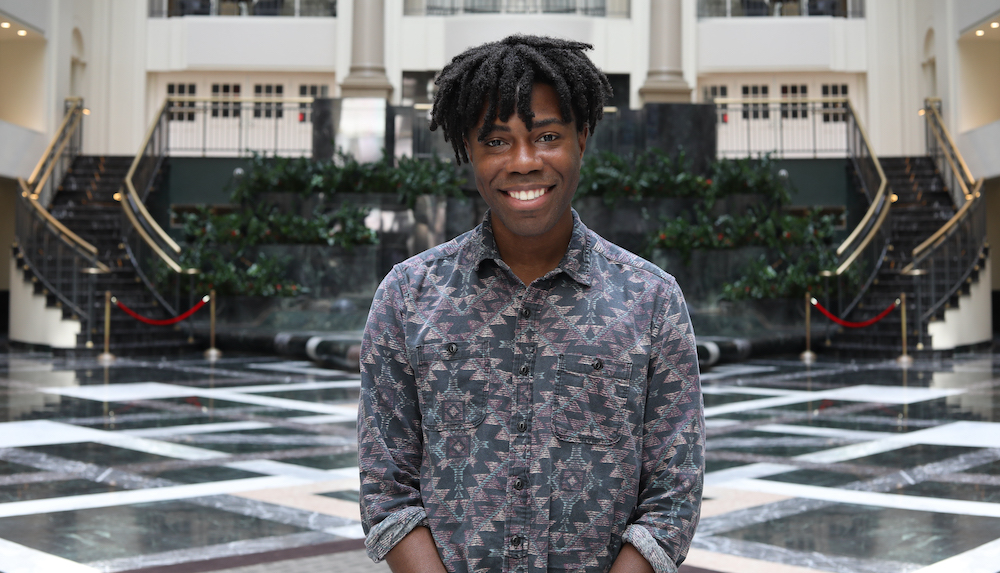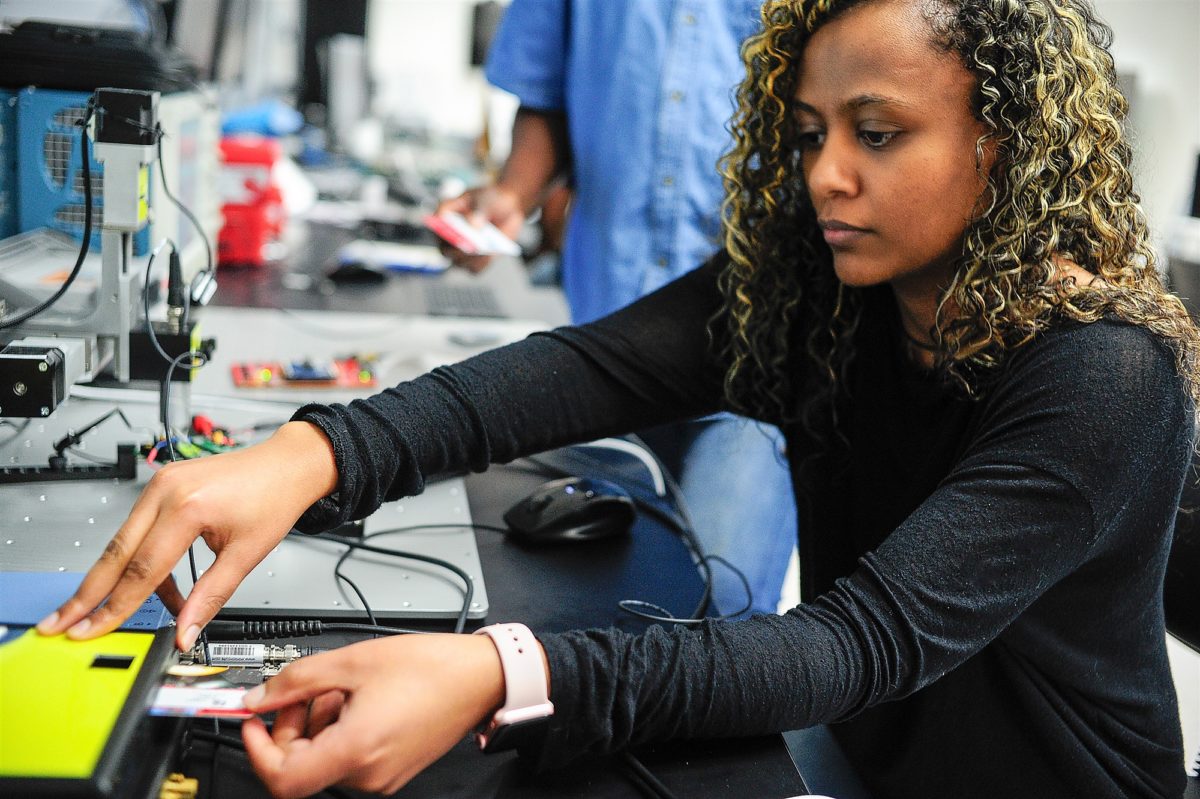Baltimore’s Morgan State University and Johns Hopkins University are teaming up on a new research center that aims to grow the area’s base of tech talent.
The Center for Advanced Electro-Photonics with 2D Materials at Morgan State is funded by a five-year, $7.5 million grant from the U.S. Department of Defense (DoD).
With this center, leaders are looking to offer students a pipeline to a career in the DoD and create a hub of innovation for military technology for the United States. Programs will not only be accessible to MSU students, but also Baltimore high school students.
“The center will be fulfilling a broad and strategic mission for the department — strengthening and widening the talent pipeline for the technology workforce of the future,” said Heidi Shyu, Under Secretary of Defense for Research and Engineering, at a virtual kickoff on Wednesday.
A short list of some of the programs set to come out of this center are: a specialized graduate program on advanced materials at MSU, summer internships for high school students and a six-week peer mentoring research program for high schools students that exposes youth to advanced materials research and photonics technology.
The partnership between Morgan and Hopkins also entails a STEM partnership that will matriculate Morgan State students into PHD programs at Hopkins through the Vivien Thomas Scholars Initiative. The program offers the academic and financial support needed to ensure students’ success, including up to six years of full tuition support, a stipend, health insurance and other benefits, along with significant mentorship, research, professional development and community-building opportunities.
The kickoff on Wednesday was a symbolic gesture of the joint goal of creating equity in the STEM career pipeline for MSU, JHU and the DoD, illustrating the plan the two universities have for the joint facility. According to the DoD, the center’s resarch will focus on a particular class of two-dimensional materials that could be applied to specific areas of technology, like wearables, sensors and thermoelectric technologies.
Leaders said success will require the universities to work together.
“Focus on the strengths of the other institution,” said Dr. Willie May, VP for research and economic development at MSU. “How do you pull those two things together then root them in respect? Bring the appropriate faculty into it and then collaborate in a way that’s going to respond to the issue at hand.”
It’s part of an effort to establish DoD Centers of Excellence at Historically Black Colleges and Universities in biotech and materials science.
“Advancement in knowledge and problem solving requires diverse perspectives, expertise and experiences, which is precisely what this effort is designed to provide,” said Dr. Ed Schlesinger, dean of engineering at JHU. “By expanding educational opportunities, we’re going to be deepening our pool of talent and adding new voices to the conversation. This is critical if we’re going to see beyond how things are done today and understand what can be.”
Donte Kirby is a 2020-2022 corps member for Report for America, an initiative of The Groundtruth Project that pairs young journalists with local newsrooms. This position is supported by the Robert W. Deutsch Foundation.Join our growing Slack community
Join 5,000 tech professionals and entrepreneurs in our community Slack today!
Donate to the Journalism Fund
Your support powers our independent journalism. Unlike most business-media outlets, we don’t have a paywall. Instead, we count on your personal and organizational contributions.

A founder’s vision comes alive at a showcase for Baltimore’s student entrepreneurs

Traditional PPE isn’t made for everyone. Here’s how one startup is fixing it.

Comcast introduces ultra-low lag Xfinity internet that boosts experiences with Meta, NVIDIA and Valve


